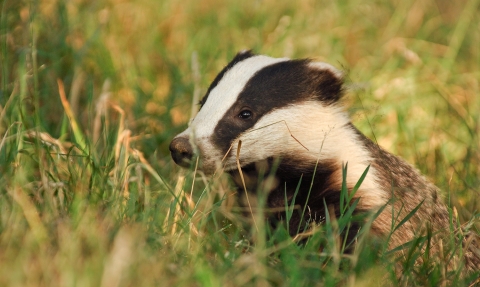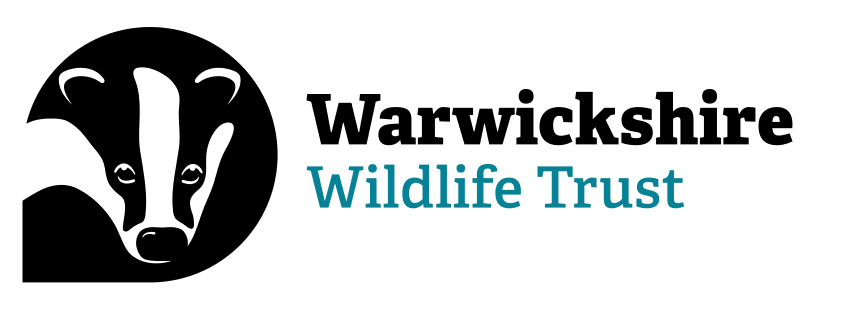
Credit Andrew Parkinson/2020VISION
Policies and Position Statements
Position Statements - Species
The following statements outline our position in regard to species specific issues in Warwickshire, Coventry and Solihull
Badgers and bovine tuberculosis (bTB)
The Wildlife Trusts have actively opposed the badger cull since 2004. There is no conclusive scientific evidence to demonstrate that culling badgers decreases the incidence of bTB in cattle. Long-term trials by the UK Government showed that culling could actually make the situation worse by encouraging badgers to move around – the ‘perturbation effect’ [1].
We are very mindful that bTB can have a devastating emotional and financial impact on the lives of farmers and we want to find solutions that work for everyone.
Warwickshire Wildlife Trust conducted badger vaccinations between 2012 and 2015 when we ceased our vaccination programme due the global shortage of badger BCG vaccine. This permitted other large area vaccination schemes utilising the available alternative vaccine to continue. Three Wildlife Trusts, Derbyshire, Nottinghamshire and Berks, Bucks & Oxfordshire, pioneered the use of this alternative vaccine.
We will continue to assist other Wildlife Trusts with their vaccination efforts. Specifically, we have loaned Nottinghamshire Wildlife Trust traps and equipment to support their vaccination programme and we continue to support local vaccination through the Warwickshire Badger Group by loaning equipment.
Finally, Warwickshire Wildlife Trust will never permit the culling of badgers on any land it owns if a cull was to be proposed in Warwickshire. We will continue to engage with land owners and partners to promote the environmental and financial benefits of vaccination and other non-lethal control methods to reduce the spread of bovine TB in cattle for the benefit of the farming community and an iconic and highly valued native species.
You can read more about The Wildlife Trusts views on bovine Tb and the badger cull, and our badger vaccination work, here: www.wildlifetrusts.org/badgers
[1] The conclusions of the RBCT are available to download, contained within the Final Report of the Independent Scientific Group on Cattle TB - 'Bovine TB: The scientific evidence.’
Position Statements - Habitats
The following statements outline our position in regard to specific habitat issues in Warwickshire, Coventry and Solihull
Neonicotinoid insecticides
Neonicotinoid insecticides; background information
Since the introduction of neonicotinoids in 1991, there has been wealth of research which demonstrates that they are harmful to insect pollinators (and other invertebrates) at sub-lethal doses.
Most plant communities in the UK rely on pollinating insects to reproduce and therefore spread (apart from wind-pollinated species, such as grasses). Insect pollinators also form a vital part of the food chain for other species, including birds, reptiles and amphibians. It follows that any insecticide that drastically reduces pollinator numbers will have effects beyond the agricultural sector and will ultimately affect the health and function of entire ecosystems.
The registration documents/fact sheets for the individual neonicotinoids state that they are toxic or highly toxic to bees, either acutely or chronically via pollen and nectar8. However, the manufacturers of the insecticides claim that neonicotinoids do not cause direct bee mortality at small doses.
Oilseed rape (Brassica napus L.) is one of the principal crops treated with neonicotinoids worldwide and is the main arable crop on which bees actively forage in the UK: the crop covers 8.2 million ha in Europe (34.1 million ha worldwide).
The European Food Safety Authority’s risk assessment of three neonicotinoids (clothianidin, imidacloprid and thiametoxam) resulted in the European Commission introducing a two-year ban of their use on crops attractive to bees in December 2013, despite opposition from the UK Government. The restrictions are not time-limited and will stay in place until the Commission decides to change them. British ministers granted a temporary lifting of the ban in 2015 when the NFU argued it was needed to fight the cabbage stem flea beetle9 in oil seed rape seeds. However, in 2016 the government’s scientific advisers rejected calls from the NFU and the Agriculture and Horticulture Development Board to lift the ban again. This was the first time the Government has ruled against neonicotinoid use.
Neonicotinoids are still widely used in the UK, since the EU moratorium only covers the use of three neonicotinoids on certain crops, and the UK does not currently monitor neonicotinoid pollution.
Carbon Reduction Strategy
Along with many other organisations, we have become more conscious of our own impact on the environment as we carry out our work. This has been prompted most recently by the UK Government’s ‘Net Zero 2050’ law which requires the UK to bring greenhouse gas emissions to net zero by 2050.
Net Zero 2050 has therefore prompted us to evaluate our carbon footprint and re-evaluate how we undertake our operations. The Trust has completed its first carbon footprint (GHG inventory) and we have now designed this Carbon Reduction Strategy to help us respond to the challenges required by Net Zero 2050.
Read our Carbon Reduction Strategy below to learn more.
Carbon Reduction Strategy
Position Statements - People
The following statements outline our position in regard to people and community issues in Warwickshire, Coventry and Solihull
Equality, Diversity and Inclusion
Our vision is to bring people closer to nature, with land rich in wildlife. Our mission is a society where nature matters, and everyone can have a strong and personal connection with wildlife and wild places. Creating a ‘Wilder Future’ for a Wilder Warwickshire, Coventry, and Solihull is an ambitious goal that we can only achieve if we work together to ensure that people from across the full breadth of our communities feel welcome, included, and empowered to connect with and care for nature.
As an employer we recognise that, at present, the conservation sector is one of the least diverse in the UK. As a grassroots organisation we also know not everyone in the areas we serve has equal access to nature. It is not only our responsibility to play our part in addressing these disparities, but also fundamental to our values that we embrace diverse voices, perspectives, knowledge and experiences. By reflecting the communities we serve, we not only engage more people but also bring in fresh ideas that can help us learn, innovate and grow.
We are committed to embedding equality, diversity and inclusion (EDI) in all that we do so that we can better understand the different relationships people have with nature, and address barriers to accessing nature and greenspaces. We want to work in partnership to create an inclusive landscape that reflects all walks of life, where nature is genuinely accessible, and enjoyment of greenspaces is an experience available to everyone.
We are steadfast in our ambition to make nature’s recovery more inclusive, relevant, and equitable for everyone, whether they are current or potential Trust staff and volunteers, participants in our activities, individuals taking action for wildlife in their gardens, or groups making collective efforts in schools, businesses and community projects.
Safeguarding Commitment Statement
Warwickshire Wildlife Trust believes that everyone has a responsibility to Safeguard children, young people and adults at risk; we are committed to ensuring their safety and wellbeing is at the heart of our engagement with people.
Download the full statement below.
Comment on Trust Policies and Position Statements
Warwickshire Wildlife Trust places great importance on the views and opinions of our members and we are always pleased to receive feedback on our work.
We occasionally seek the views and feedback of members and the general public through consultations. These will usually be advertised on our website and in WildWarwickshire magazine.
e: enquiries@wkwt.org.uk
t: 024 7630 2912
